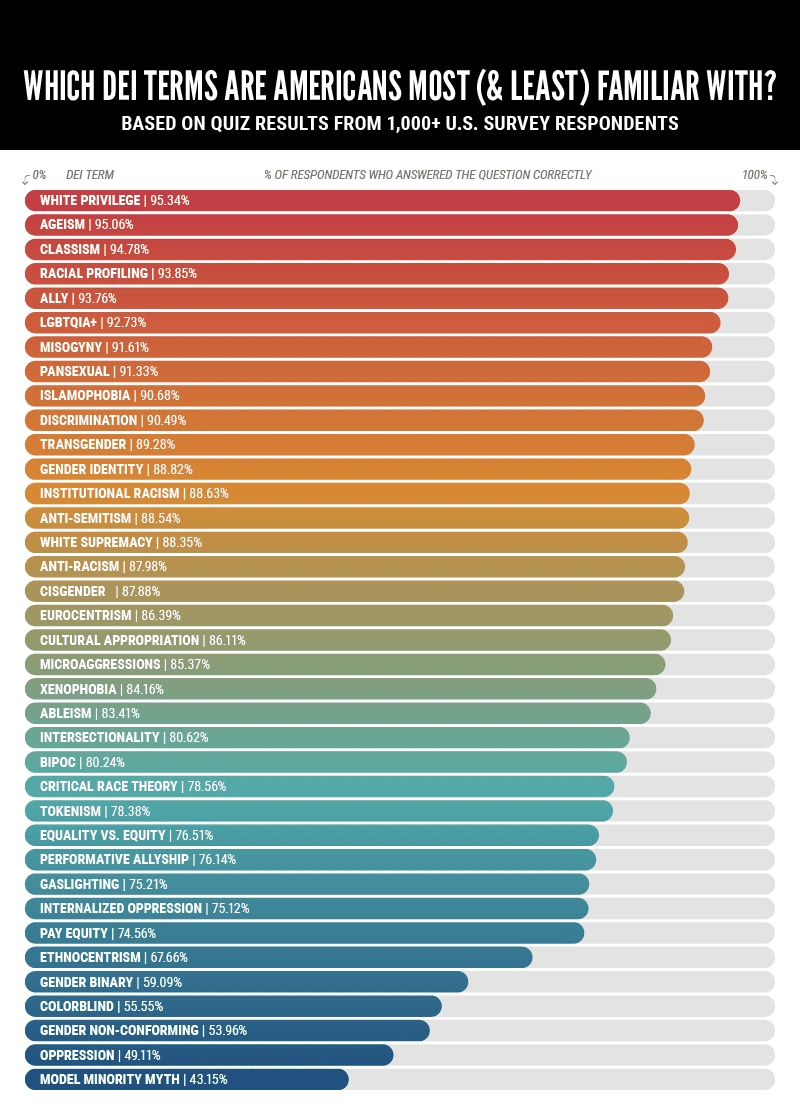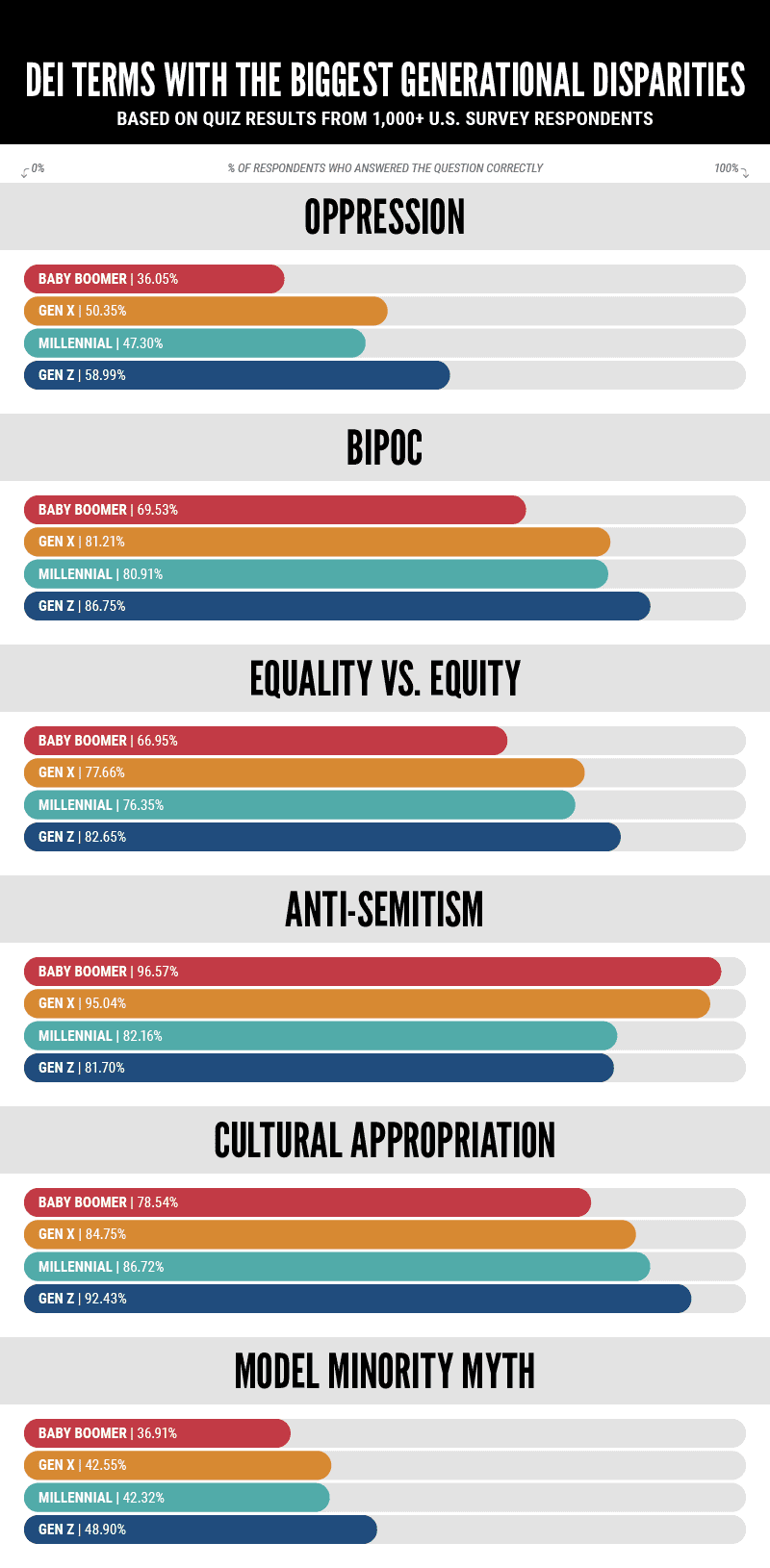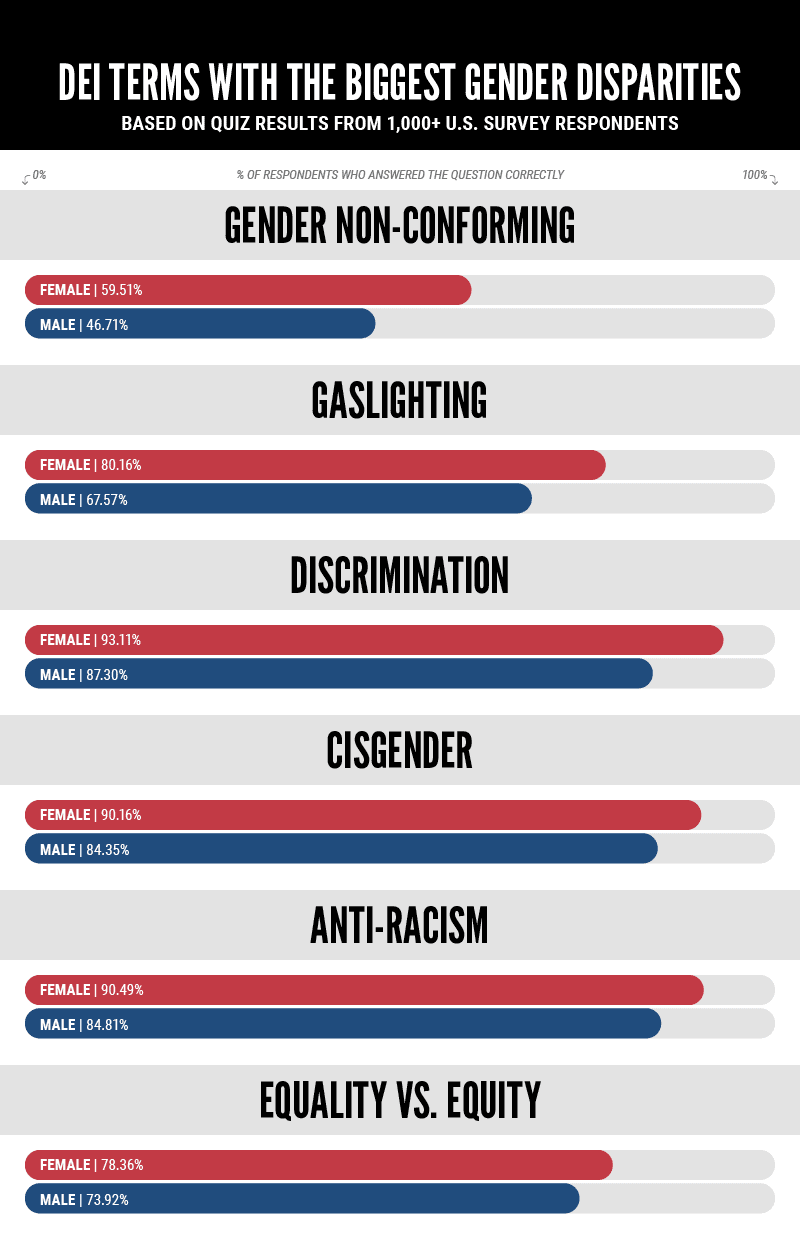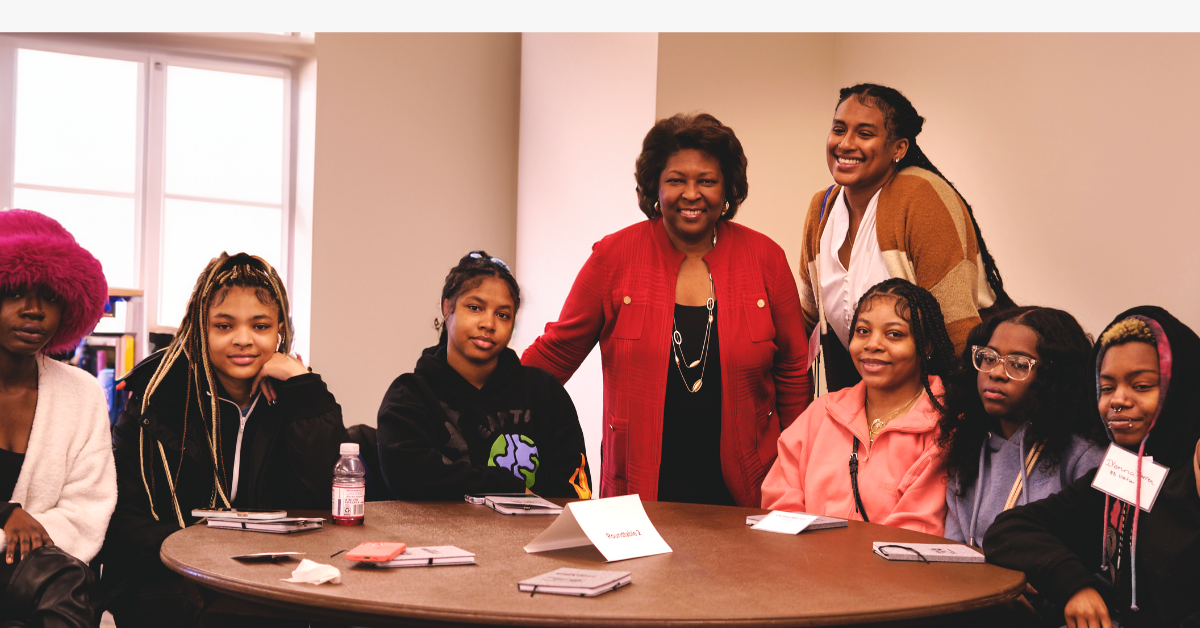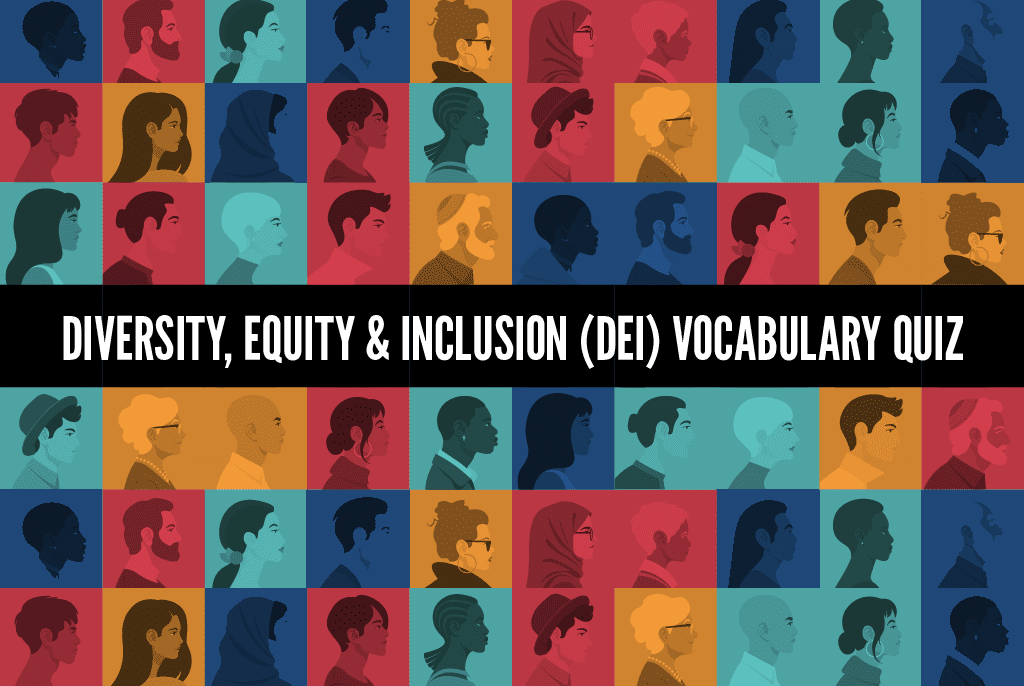
Testing American Knowledge of DEI Terms
In recent years, diversity, equity and inclusion (DEI) topics have become more mainstream in America, in part due to equitable access to education on social media. Content creators on Instagram, TikTok and YouTube have built robust activist platforms online to lift up the voices of marginalized groups and spread awareness about social justice topics from transgender legislation to anti-racism movements. All in all, a new mode of activism is taking shape, and it starts on our newsfeeds.
Now that DEI education is becoming more accessible, United Way of the National Capital Area wanted to put Americans’ knowledge of common DEI terms to the test. How well do Americans understand terms like allyship, white privilege, pansexual and BIPOC, among others? Do Americans know the difference between equity and equality?
We asked 1,073 Americans across demographics and all 50 states to take our DEI quiz to find out how familiar the average American is with DEI terms. We then analyzed the results by gender and generation to uncover disparities in the different demographics’ understandings of these terms. Read on to find out which DEI terms Americans are most and least familiar with.
Click here to take our diversity, equity and inclusion (DEI) vocabulary quiz and test out your own knowledge of social justice terms!
Which DEI Terms Are Americans Most & Least Familiar With?
The five terms that Americans had the most familiarity with based on the DEI quiz:
- White privilege
- Ageism
- Classism
- Racial profiling
- Ally
What is White Privilege?
White privilege, the unquestioned and unearned set of advantages, entitlements and benefits bestowed on people solely because they are white, has been widely covered in recent years by nonfiction writers and activists alike. Meaningful discussion of this concept and more has fueled movements across the country advocating for racial justice and social change. What’s more, the concept has challenged Americans to reframe their thinking and confront the blatant racial disparities that exist in the U.S.
The diversity-related vocabulary terms that Americans had the least familiarity with based on quiz results:
- Model minority myth
- Oppression
- Gender nonconforming
- Colorblind
- Gender binary
What is Model Minority Myth?
Model minority myth tackles the enduring stereotype that certain groups of people are the “ideal” racial or ethnic minority. Asian Americans and Pacific Islanders battle this concept frequently, as they’re often viewed as good students and diligent workers with successful careers. This stereotype can affect their ability to get the financial aid, support, and resources they may need.
The difference between equity and equality is another concept that quiz-takers had trouble with, in comparison to other terms. For many, it’s hard to distinguish the difference between the two. Equity recognizes each person has different circumstances and needs, while equality is giving everyone the exact same resources across the board, regardless of individuals’ or groups of people’s actual needs or opportunities/resources already provided to them.
Understanding of DEI Terms by Generation & Gender
Does understanding of certain DEI terms differ by age range? Our quiz results say yes. Many of the terms with the biggest generational disparities mirror the terms Americans across the board had trouble with––model minority myth, oppression, equity vs. equality and BIPOC.
For certain terms, understanding varied quite a bit between younger and older generations. Older generations (baby boomers and Gen X) were more familiar with terms like anti-semitism, colorblind and ageism than younger generations. For terms like BIPOC, cultural appropriation, gaslighting, and microaggressions, it was quite the opposite. Younger generations (millennials and Gen Z) were more familiar with those terms than older generations.
Another DEI term with generational disparity was oppression. 59% of Gen Z quiz-takers answered the question correctly, compared to only 36% of baby boomers who answered the question correctly. However, regardless of age range, quiz-takers across the board had trouble with this term. Only 49% of all quiz-takers were able to define the term oppression correctly. Many quiz-takers confused oppression with the term discrimination.
According to the American Psychological Association (APA), discrimination is the “unfair or prejudicial treatment of people and groups based on characteristics such as race, gender, age or sexual orientation,” whereas oppression describes systems or behaviors that disadvantage groups or individuals through formal institutions or informal attitudes. Oppression represents institutional and systemic discrimination.
DEI Terms with the Biggest Gender Disparity
Two terms with notable gender disparity were gender nonconforming and gaslighting. Based on our quiz results, participants who identified as female are more familiar with these terms (and others) than those who identified as male. Gender nonconformity is a behavior or gender expression by a person who does not match masculine and feminine gender norms, and gaslighting is a form of mental manipulation in which a person sows seeds of doubt in a targeted individual, making that individual question their own memory, perception or judgment.
Other DEI terms with the biggest gender disparities:
- Discrimination
- Cisgender
- Anti-racism
- Equity vs. equality
Final Thoughts on DEI Terms
At United Way of the National Capital Area, we’re committed to the health, education and economic opportunity of every person in our community, regardless of race, gender, income, and ability. Click here to see how you can practice and promote equity and social justice within your community!
Sources used for the DEI Vocabulary Quiz:
https://www.dal.ca/dept/hres/education-campaigns/definitions.html
https://www.oxfordreference.com/view/10.1093/oi/authority.20110803104818992
https://www.edweek.org/leadership/what-is-critical-race-theory-and-why-is-it-under-attack/2021/05
https://www.goodrx.com/blog/meaning-of-lgbtqia/
https://woub.org/2020/07/28/code-switching-is-a-form-of-systemic-racism-against-blacks/
https://www.bestcolleges.com/blog/model-minority-myth/
https://www.merriam-webster.com/dictionary/white%20supremacy
https://www.apa.org/topics/racism-bias-discrimination/types-stress
